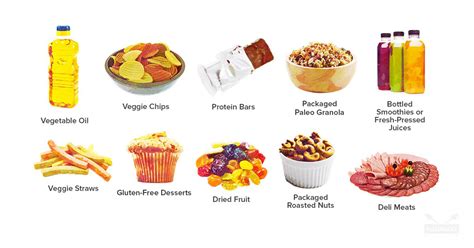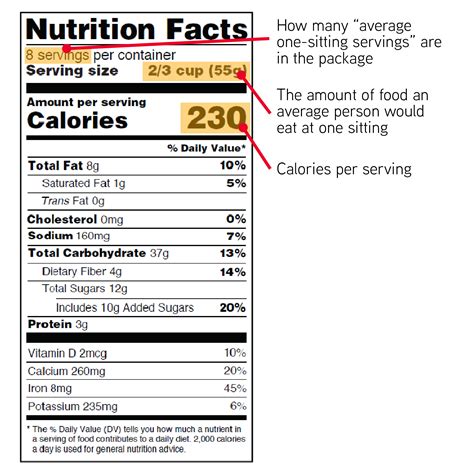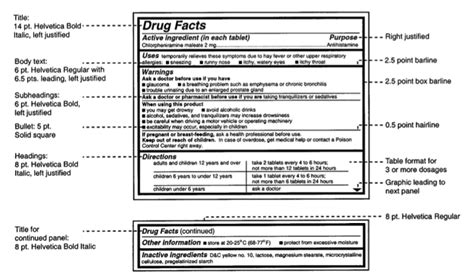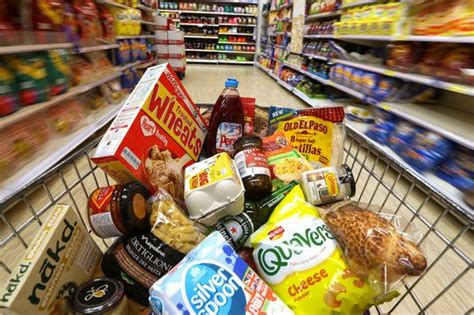Ways to Identify Counterfeit Health Foods
In today’s world, where health consciousness is at an all-time high, the demand for healthy food options has surged. However, this increase in demand has unfortunately attracted counterfeiters who seek to profit from unsuspecting consumers. Counterfeit health foods, often disguised as genuine products, can pose serious health risks, as they may contain harmful ingredients or lack the advertised nutritional value.
Recognizing counterfeit health foods is crucial to safeguarding your health and well-being. This comprehensive guide will equip you with the knowledge and strategies to spot fakes and ensure you’re purchasing authentic, beneficial products. Let’s dive into some frequently asked questions to shed light on the common signs of counterfeit health foods.
How can I tell if a health food is counterfeit?
Identifying counterfeit health foods can be challenging, but there are several key indicators to look out for. Here are some common signs that a product may be fake:
- Unrealistic claims: Counterfeit health foods often make exaggerated or unfounded claims about their health benefits. For example, they might claim to cure specific diseases or promote rapid weight loss without scientific evidence to support these statements. Be skeptical of any product that promises miraculous results.
- Suspicious packaging: Counterfeit products may have packaging that looks similar to the genuine brand but with subtle differences in font, colors, or spelling errors. The packaging may also seem cheap or poorly made, with blurry images or inconsistent printing.
- Oddly low prices: If a product is priced significantly lower than the market average, it could be a red flag. Counterfeiters often undercut prices to attract customers, but their products are unlikely to be genuine.
- Unusual taste or texture: Counterfeit products may have a different taste, smell, or texture compared to the authentic version. They might be overly sweet, bitter, or have an unusual consistency.
- Lack of clear labeling: Counterfeit health foods often lack clear labeling information, such as ingredients, nutritional facts, or contact details of the manufacturer. The label may also be incomplete or illegible.
- Unfamiliar sellers: Be cautious when purchasing health foods from unknown sellers, especially online. Verify the seller’s legitimacy and read customer reviews before making a purchase.
- Unusual ingredients: Check the ingredient list carefully for any unusual or questionable ingredients. If a product claims to be natural or organic, it should not contain artificial additives or preservatives.
In addition to these general signs, it’s essential to be aware of specific counterfeit health foods that are prevalent in the market. Research commonly counterfeited products, such as popular weight loss supplements, protein powders, and superfoods, to understand the specific characteristics of fake versions.

What are the most common counterfeit health foods?
Counterfeiting is unfortunately common in various sectors, and health foods are not exempt. Some of the most frequently counterfeited health foods include:
- Weight Loss Supplements: The booming weight loss industry attracts many counterfeiters. Products like green coffee bean extract, Garcinia Cambogia, and various weight loss teas are often faked.
- Protein Powders: Protein powders, particularly whey protein, are another target for counterfeiters. Fake versions may contain less protein, fillers, or even harmful substances.
- Superfoods: Demand for superfoods, such as goji berries, acai powder, and chia seeds, has led to an increase in counterfeiting. Fake versions may be diluted or contain artificial ingredients.
- Organic Products: The appeal of organic foods has created a market for counterfeiters who mislabel conventional products as organic to boost their prices.
This is not an exhaustive list, and counterfeiters continually find new products to target. It’s crucial to stay informed about the latest trends and counterfeit products.
How can I avoid buying counterfeit health foods?
Protecting yourself from counterfeit health foods requires a combination of awareness, caution, and informed choices. Here are some tips for avoiding fake products:
- Buy from reputable retailers: Choose well-established stores with a history of selling authentic products. Avoid purchasing from unknown or untrustworthy sellers.
- Check product labels carefully: Pay close attention to the packaging, ingredients, nutritional information, and manufacturer details. Look for any inconsistencies, spelling errors, or signs of tampering.
- Compare prices: If a product is priced significantly lower than the market average, it’s a red flag. Compare prices from different retailers before making a purchase.
- Read customer reviews: Online reviews can provide insights into the authenticity and quality of products. Look for reviews from verified buyers and consider any negative feedback.
- Do your research: Before buying any health food product, research the brand and its reputation. Check if the company has a website, contact information, and any regulatory certifications.
- Consider the source: If you are buying from a website or online marketplace, ensure the seller is reputable. Look for reviews, ratings, and contact information.
- Purchase from authorized distributors: When possible, buy from authorized distributors or retailers who have partnered with reputable manufacturers.

Are there any resources that can help me identify counterfeit health foods?
You’re not alone in the fight against counterfeit health foods. Several resources can help you identify fakes and make informed purchasing decisions. Here are some valuable resources:
- Government agencies: The U.S. Food and Drug Administration (FDA) and other national or regional health agencies often publish warnings about counterfeit products and provide consumer protection information.
- Industry associations: Industry associations for specific health food sectors may offer information and resources to help consumers identify counterfeit products. For example, the National Nutritional Foods Association (NNFA) is a resource for nutritional supplements.
- Consumer watchdog organizations: Organizations like the Consumer Reports or Consumer Federation of America investigate and report on counterfeit products and consumer fraud.
- Online databases: There are websites and databases that compile information about counterfeit products, including health foods. You can search these databases for specific products or brands to see if they have been flagged as counterfeit.
Staying informed and accessing reliable resources can significantly reduce your risk of purchasing counterfeit health foods.
What should I do if I suspect a health food is counterfeit?
If you have reason to believe you have purchased a counterfeit health food, take the following steps:
- Stop using the product: Immediately discontinue using the product if you suspect it is counterfeit. Contact your healthcare provider if you experience any adverse reactions.
- Contact the seller: Report the issue to the retailer or online seller where you purchased the product. Provide details of the product, the purchase date, and your concerns.
- Report to authorities: If you believe you have purchased a counterfeit product, you can report it to your local consumer protection agency or the FDA.
- Share your experience: Share your experience online or with consumer watchdog organizations to raise awareness about counterfeit products.
- Document your findings: Take pictures of the product, its packaging, and any accompanying documentation. Keep a record of your purchase and any correspondence with the seller or authorities.
Reporting counterfeit products helps protect other consumers and prevents counterfeiters from exploiting unsuspecting buyers.

Are there any legal consequences for selling counterfeit health foods?
Selling counterfeit health foods is illegal and can have serious legal consequences. The FDA and other regulatory agencies are actively cracking down on counterfeiters, imposing fines and penalties on those found guilty of selling fake products.
The legal penalties for selling counterfeit health foods can include:
- Fines: Counterfeiters can face substantial fines for violating food safety regulations and consumer protection laws.
- Prison time: In severe cases, counterfeiters may face imprisonment, particularly if the products pose a serious health risk.
- Seizure of products: Government agencies can seize counterfeit products from manufacturers, distributors, and retailers.
- Business closures: Companies involved in selling counterfeit health foods can face business closures and loss of licenses.
- Reputational damage: Selling counterfeit products can severely damage a company’s reputation, making it difficult to regain consumer trust.
The legal repercussions of selling counterfeit health foods are severe, and individuals and companies involved in this activity should be aware of the risks.
What are some tips for identifying counterfeit health foods online?
The internet has revolutionized shopping, but it has also opened up new avenues for counterfeiters. When purchasing health foods online, extra vigilance is required to avoid fake products. Here are some tips for identifying counterfeit health foods online:
- Verify the seller’s legitimacy: Check the seller’s website for contact information, a physical address, and any regulatory certifications. Look for reviews and ratings on third-party websites.
- Inspect the product images: Pay close attention to the product images. Look for any signs of poor quality, such as blurry images, inconsistent colors, or misspellings on the packaging.
- Read customer reviews: Look for reviews from verified buyers and be skeptical of overly positive reviews, especially if they seem too good to be true.
- Compare prices with reputable retailers: If a product is offered at a significantly lower price than reputable retailers, it’s a red flag.
- Beware of unrealistic claims: Be cautious of products that make exaggerated or unfounded health claims. Look for scientific evidence to support any claims.
- Use trusted payment methods: Pay through secure payment gateways that protect your financial information.
- Consider buying from reputable online marketplaces: Choose online marketplaces that have a proven track record of authenticity and consumer protection.
- Contact customer service: If you have any doubts, contact the seller’s customer service department to ask questions and clarify any concerns.
By being cautious and following these tips, you can significantly reduce your chances of purchasing counterfeit health foods online.
What are the health risks associated with counterfeit health foods?
The potential health risks of consuming counterfeit health foods are significant. Fake products may contain harmful ingredients, lack the advertised nutritional value, or be contaminated with dangerous substances.
Here are some potential health risks associated with counterfeit health foods:
- Allergic reactions: Counterfeit products may contain undeclared allergens, such as nuts, dairy, or soy, posing risks for individuals with food allergies.
- Toxicity: Counterfeit products may contain harmful chemicals or heavy metals, leading to poisoning or long-term health problems.
- Ineffectiveness: Counterfeit products may lack the active ingredients advertised, making them ineffective for their intended purpose. For example, a counterfeit weight loss supplement may not contain the promised ingredients to aid weight loss.
- Drug interactions: Counterfeit products may contain ingredients that interact negatively with prescription medications, leading to serious health consequences.
- Gastrointestinal issues: Counterfeit products may contain harmful bacteria or contaminants, causing gastrointestinal problems, such as diarrhea, vomiting, or food poisoning.
It’s crucial to prioritize your health and choose authentic, safe health foods. Be vigilant and informed to avoid the potential health risks associated with counterfeit products.
What are some additional things to consider when looking for authentic health foods?
Beyond the specific signs and tips outlined above, here are some additional things to consider when seeking authentic health foods:
- Focus on whole foods: Prioritize consuming whole, unprocessed foods, such as fruits, vegetables, whole grains, and lean proteins. These foods are generally less likely to be counterfeited.
- Check for certifications: Look for certifications from reputable organizations, such as the USDA Organic seal or the Non-GMO Project Verified seal.
- Trust your instincts: If something seems too good to be true or if you have any doubts about a product’s authenticity, trust your instincts and avoid purchasing it.
- Stay informed: Stay up-to-date on the latest trends in counterfeit health foods and be aware of specific products that are frequently counterfeited.
- Be patient: Don’t rush into purchasing health foods. Take your time to research, compare options, and make informed decisions.
- Don’t be afraid to ask questions: If you have any questions about a product’s authenticity, don’t hesitate to ask the retailer, manufacturer, or consumer protection agencies.
Remember, taking a proactive approach to purchasing health foods can safeguard your health and well-being.
Table Summarizing Information
| Sign of Counterfeit Health Food | Explanation |
|---|---|
| Unrealistic Claims | Exaggerated or unfounded claims about health benefits, such as curing diseases or rapid weight loss. |
| Suspicious Packaging | Packaging that looks similar to the genuine brand but with subtle differences, such as font, colors, or spelling errors. |
| Oddly Low Prices | Prices significantly lower than the market average, indicating a potential counterfeit product. |
| Unusual Taste or Texture | Different taste, smell, or texture compared to the authentic version. |
| Lack of Clear Labeling | Missing or incomplete labeling information, such as ingredients, nutritional facts, or contact details. |
| Unfamiliar Sellers | Purchasing from unknown or untrustworthy sellers, especially online. |
| Unusual Ingredients | Questionable ingredients, particularly if a product claims to be natural or organic but contains artificial additives or preservatives. |
Frequently Asked Questions
What are some examples of counterfeit health foods?
Examples of counterfeit health foods include:
- Weight loss supplements like green coffee bean extract and Garcinia Cambogia.
- Protein powders, especially whey protein.
- Superfoods like goji berries, acai powder, and chia seeds.
- Organic products that are mislabeled as organic.
How can I find more information about counterfeit health foods?
You can find more information about counterfeit health foods from various sources, such as:
- Government agencies like the FDA.
- Industry associations for specific health food sectors.
- Consumer watchdog organizations.
- Online databases that compile information about counterfeit products.
What should I do if I find a counterfeit health food product online?
If you find a counterfeit health food product online, you should:
- Contact the seller and report the issue.
- Report the issue to the online marketplace or platform where you found the product.
- Report the issue to consumer protection agencies or the FDA.
Are all health food supplements counterfeit?
No, not all health food supplements are counterfeit. Many reputable brands and manufacturers produce authentic and high-quality supplements. However, it’s important to be vigilant and follow the tips outlined in this guide to avoid purchasing counterfeit products.
How can I tell if a health food supplement is genuine?
To determine the genuineness of a health food supplement, consider these factors:
- Purchase from reputable retailers.
- Check the product labeling for accuracy and completeness.
- Read customer reviews from verified buyers.
- Research the brand and manufacturer’s reputation.
- Look for certifications from reputable organizations.
What are the consequences of selling counterfeit health foods?
Selling counterfeit health foods is illegal and can have serious consequences, including:
- Fines.
- Prison time.
- Seizure of products.
- Business closures.
- Reputational damage.
Can I trust health food supplements that are sold on discount websites or online marketplaces?
While some discount websites and online marketplaces offer genuine products, it’s crucial to exercise caution when purchasing health food supplements from these sources. Research the seller’s legitimacy, check for customer reviews, and be wary of unusually low prices.
